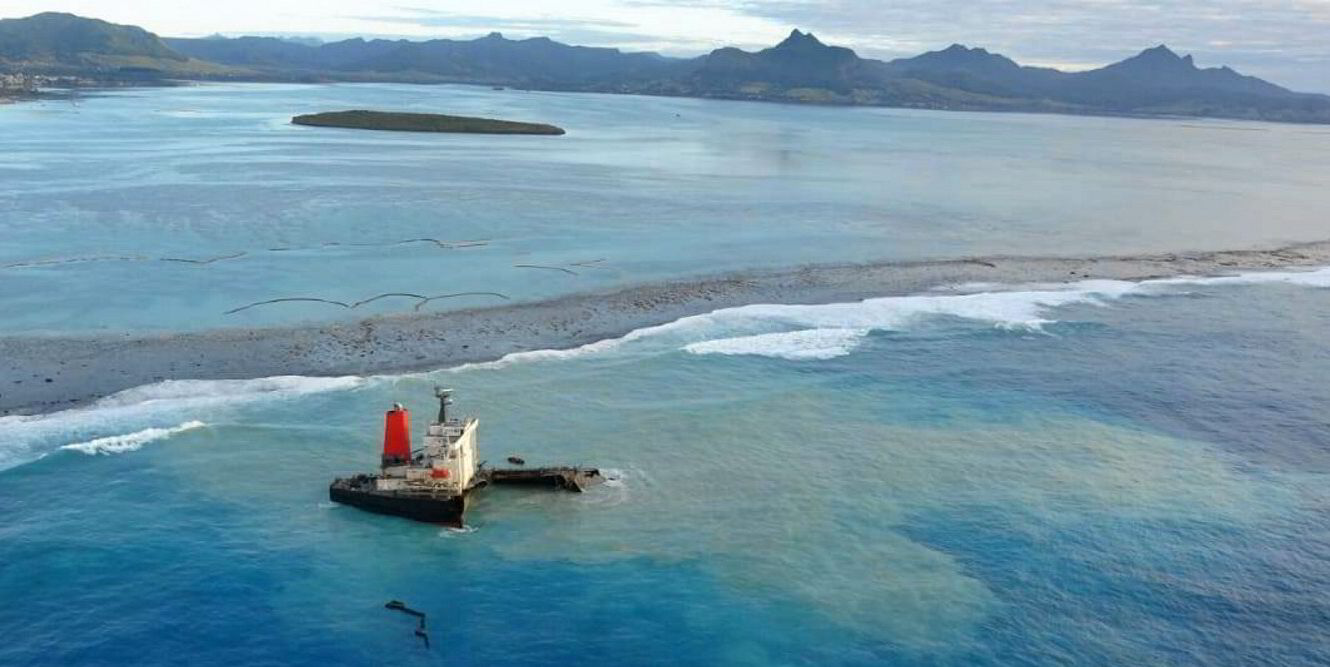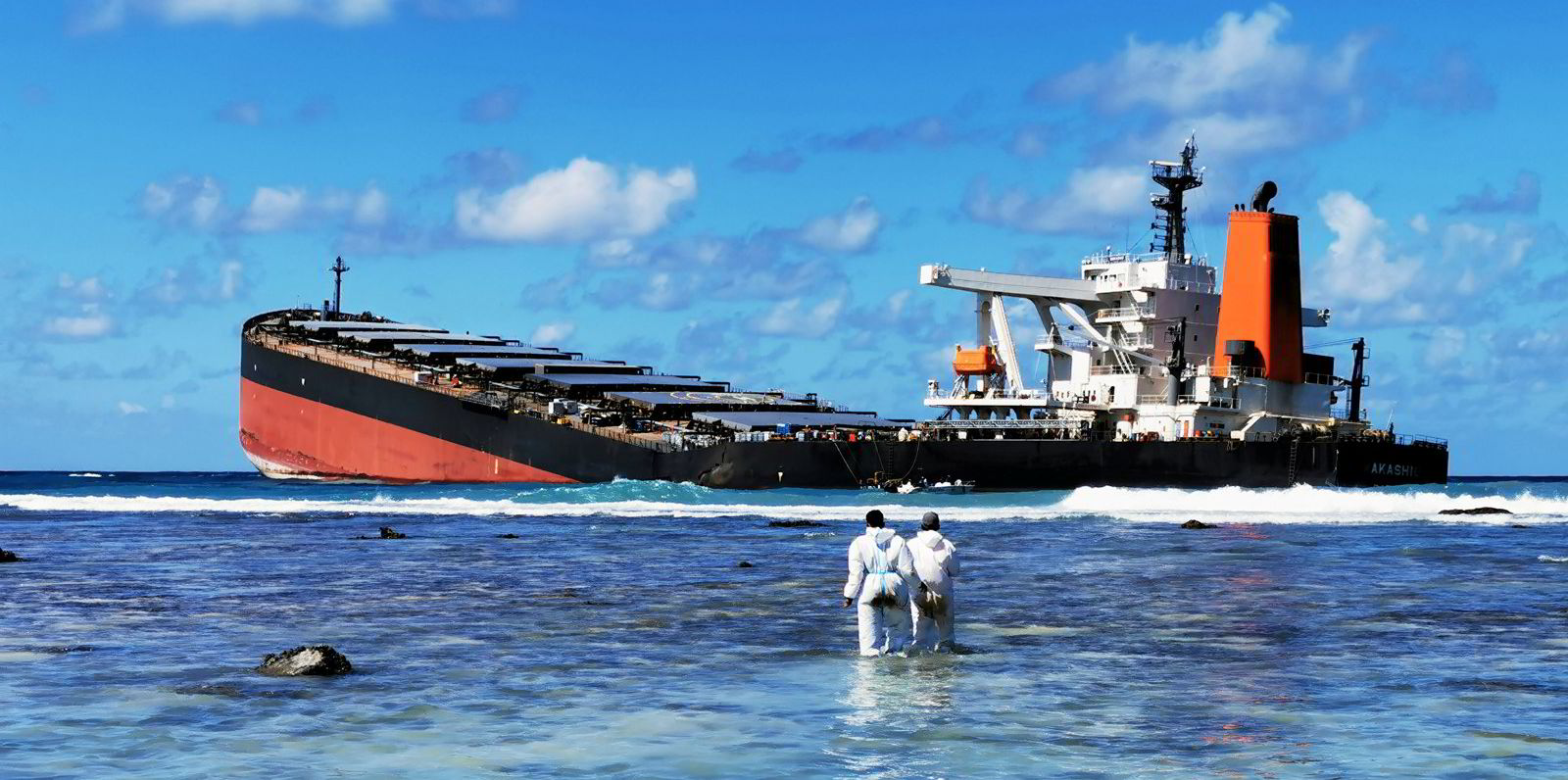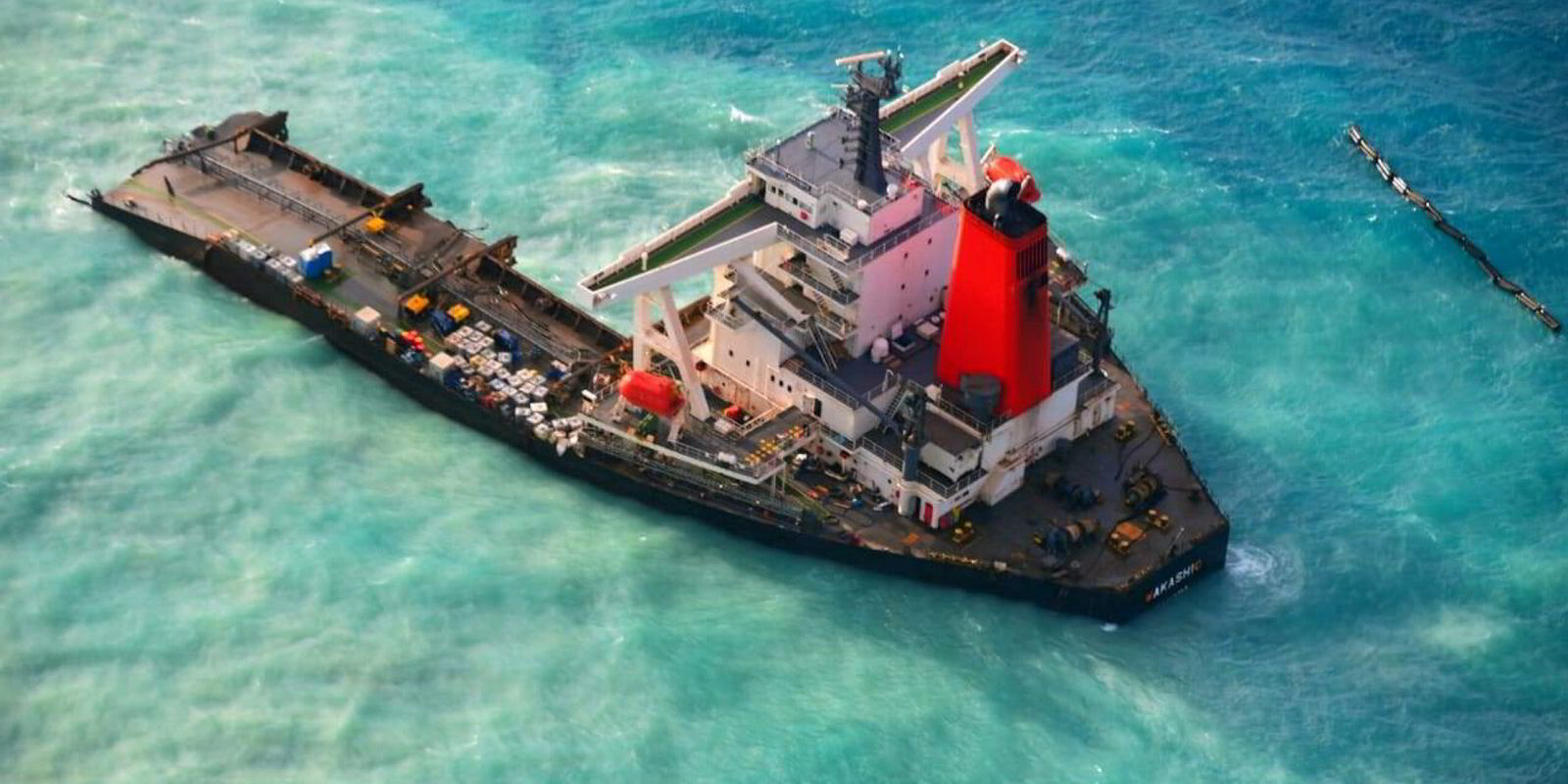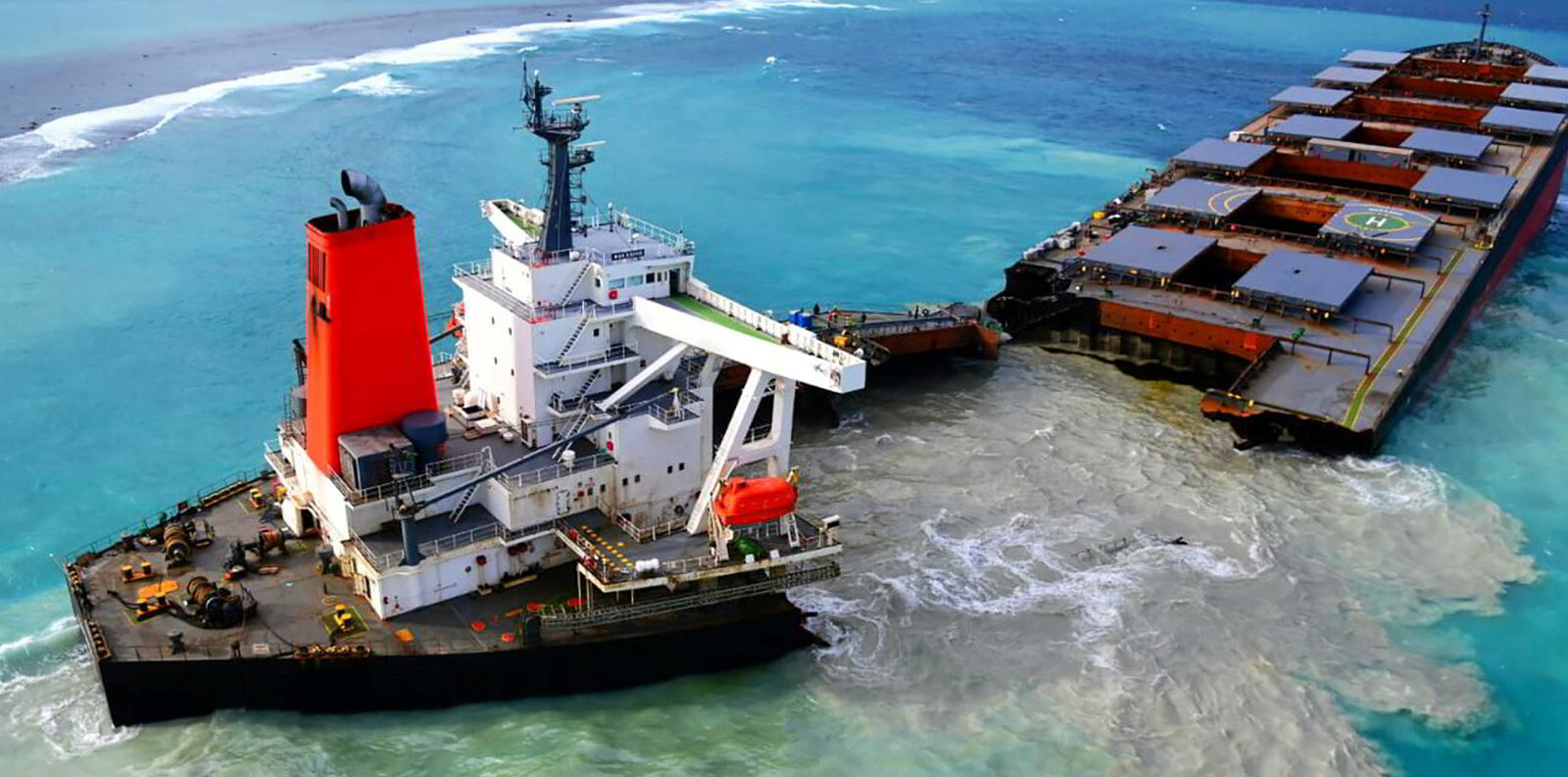BP has rejected an accusation that its marine fuel was linked to the sinking of a giant Japanese ore carrier off Mauritius last year as “baseless”, saying the product it supplied met all industry standards.
In an article published by Forbes, Mauritian development economist Nishan Degnarain said BP supplied very low-sulphur fuel oil (VLSFO) to the 203,100-dwt Wakashio (built 2007) in Singapore last July.
The ship later diverted from its route and sailed towards Mauritius after some issues were found related to the VLSFO’s metal sand, viscosity and Calculated Carbon Aromaticity Index, Degnarain claimed.
The bulker, operated by Mitsui OSK Lines, ran aground off the island nation in late July before breaking, sinking and spilling 1,000 tonnes of fuel in the following weeks.
BP confirmed that it supplied VLSFO to the Wakashio but said the fuel “fully met the specified standard that is recognised across the international bunkering industry”, namely the International Organization for Standardization 8217 specifications of marine fuels.
“This was confirmed by separate analyses carried out by BP and an independent inspection company appointed by MOL,” BP said. “MOL raised no concerns about the quality of the oil, nor have the operators of seven other vessels that received the same fuel.
“A number of the properties of the oil that are alleged in the article do not correspond with these analyses.
Investigation ‘not hindered’
“We are not aware of anything to indicate that fuel quality contributed to the vessel’s grounding.”
Panama, the flag state for the Wakashio, investigated the incident and said in September that the vessel was diverted to Mauritius because its crew were seeking internet connectivity. The findings were preliminary.
Citing documents obtained via freedom of information requests, Degnarain also alleged that BP was not cooperative in the investigation and did not provide fuel samples to the Mauritius authorities.
“BP has not hindered or impeded any investigation,” the major said. “We received requests for information on the fuel from Australian and Singapore authorities.
“We referred the Australian authority to MOL, which has the results of the analysis carried out on the oil by the independent inspection company, and we provided the Singapore authority with the results of BP’s own analysis.
“We did not receive follow-up requests from these authorities and are not aware of requests from any other authorities.”
Degnarain, a visiting fellow at the London School of Economics, has been describing VLSFO as an “experimental fuel” with “hazardous chemicals” in his articles.
The United Nations Human Rights Council has launched a study on the International Maritime Organization’s regulations for hazardous substances, including the IMO 2020 rules.






